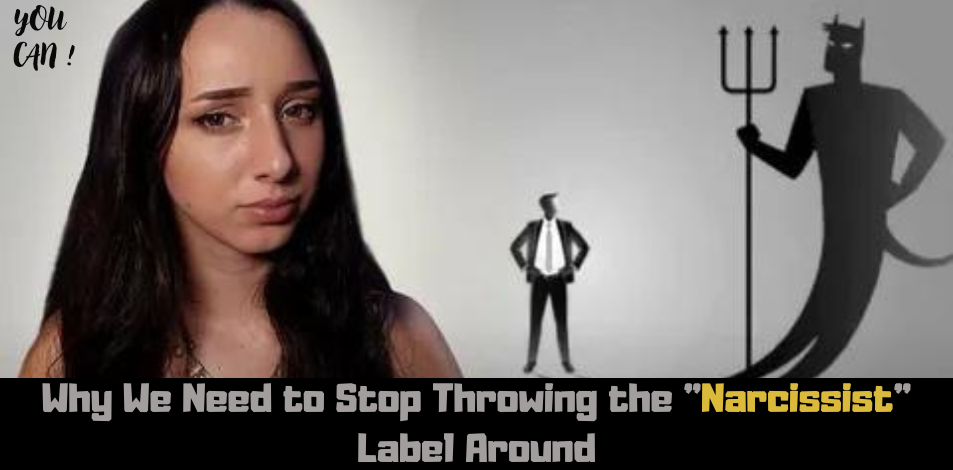
Two of my fellow bloggers, Jeremy Sherman and Susan Whitbourne, have been working to bring some much-needed nuance to the popular discussion of narcissism. I want to add to this conversation by pointing out some of the dangers that come with carelessly labeling someone a “narcissist.”
Many people experience real pain at the hands of loved ones with severe narcissism, particularly the manipulative variety known as malignant narcissists. Victims of these extreme self-centered individuals can become so debilitated by their experiences that they develop PTSD. Being able to call an abusive parent, partner, or friend a narcissist can provide real comfort to sufferers, providing a name for the source of their distress, and the space needed to heal and move on.
But the current indiscriminate use of the term “narcissist” for every minor instance of self-absorption trivializes this real pain. Posting a bunch of selfies, hogging the bathroom mirror, or talking loudly on your phone is not the same as compulsively lying to your partner, insulting them, or even yelling at them—all of which are common habits of people with severe narcissism. Equating these behaviors by labeling people who exhibit the former as narcissists is a bit like comparing a pickpocket to an armed bank robber.
But all this random name-calling is also a symptom of a much larger confusion: Narcissism, as many writers have pointed out, falls along a spectrum; it’s not an all-or-nothing trait. Moreover, a certain amount of narcissism is good for us—which is why “narcissism” has never been accepted as a mental health diagnosis.
Many people with NPD may not have malignant narcissism or any other mental health problem; they’re simply higher up the list than most people. The only official mental health disorder that refers to narcissism at all is narcissistic personality disorder (NPD), which belongs to people who fall so high on the spectrum that they become pathological.
In general, when researchers use the term “narcissist,” they’re not referring to malignant narcissists or people with Narcissistic Personality Disorder at all, but simply to people who score high on self-report measures like the Narcissistic Personality Inventory. But it’s important to remember that high scores on measures of narcissism aren’t necessarily bad.
As Dr. Whitbourne points out, some narcissists are healthy, productive, ambitious, and caring human beings. They rank high on a scale called autonomous narcissism. Healthy narcissism fuels our self-esteem and resilience. When we label ordinary scumbags and the worst examples of humanity as narcissists, we’re not only trivializing the pain of hundreds of thousands of survivors; we’re also making matters worse by assuming that narcissism is always bad.
Throwing the word “narcissist” around does more than reduce a rich psychological concept to an empty insult: it also blinds us to our own potentially unhealthy narcissism.
Early in my training, my fellow students and I would joke a lot about our narcissism. We enjoyed the jokes. It kept us in check. I shudder to think what would happen today if I made a lighthearted comment about a friend’s narcissism at a dinner party; it would be like throwing shit in a crowded swimming pool. Instead of helping us become more aware, the total stigmatization of narcissism has made us all more likely to point fingers and condemn everyone else as blatantly selfish. Now, only other people can be narcissists—“Me, I would never act like that!” we whisper at parties.
Ironically, we are all remarkably self-absorbed these days about our lack of narcissism.
At times, any of us can get lost in ourselves and forget about those around us, whether through being overwhelmed by praise or temporarily preoccupied with fears of judgment. Narcissism is not a fixed trait. It waxes and wanes, flares, and wanes, depending on the obstacles or fears a person faces.
The biggest problem with becoming obsessed with the label “narcissist” is this: It distracts us from more immediate dangers. Countless readers ask me if there is hope for their abusive boyfriend or girlfriend, whom they fear might be a “narcissist.” My response is always the same: Narcissism is not the problem; the abuse is. Whether alcoholism, chronic pain, loneliness, or severe narcissism causes the abuse is not our immediate concern. Some lines should not be crossed no matter what drives people over them. Our priority is protecting ourselves.




